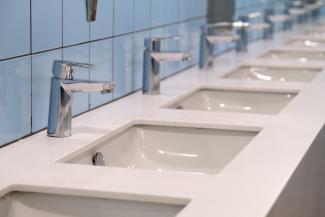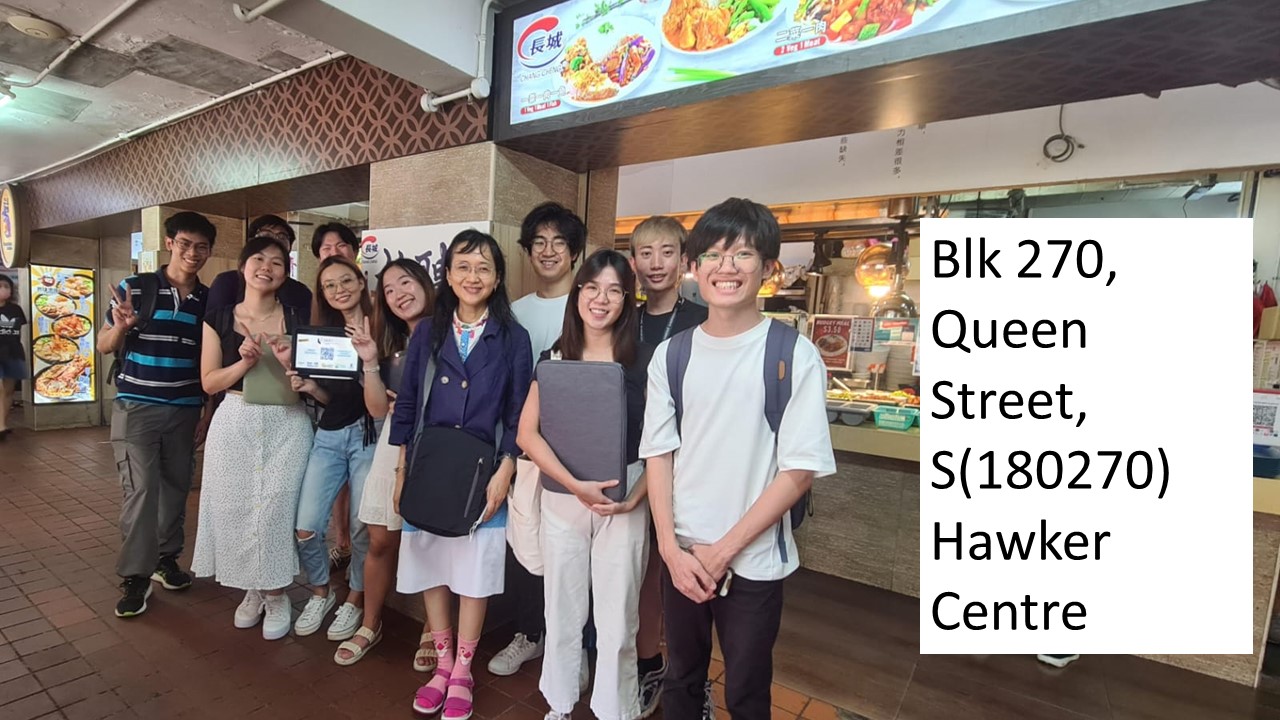
Singapore, 8 November 2023 – Despite improvements in the state of public hygiene at hawker centres compared to 2020, Singaporeans hope that more can be done to improve the toilet sanitation at coffee shops. Customers think worse of these toilets than the employees do, with a quarter of those interviewed saying they would not answer the call of nature at these facilities. These findings were uncovered in a new nationwide study conducted by Singapore Management University (SMU), where the overall perception of toilets in coffee shops and hawkers centres is that they are no different from how they were in 2020 and 2016.
This follow-up survey, titled Waterloo, was conducted between August and September 2023 by SMU Principal Lecturer of Statistics Rosie Ching and her 170 undergraduates. It was done with the support of her partners, World Toilet Organisation (WTO), Public Hygiene Council (PHC), Singapore Kindness Movement (SKM) and Restroom Association Singapore (RAS).
Ms. Ching and her students visited more than 2,200 toilets across Singapore’s coffee shops and hawkers centres, asking a total of 9,411 people, comprising 460 employees and 8,951 customers, for their views on the state of these toilets. These interviews allowed detailed insights into human perceptions of toilet cleanliness and how they compare to 2020, when Singapore had just stepped into the throes of the Covid-19 pandemic.
Similar to the nationwide surveys carried out in 2020 and 2016, this year’s edition comprised comprehensive on-site surveys of toilet attributes. The odour of hawker centre toilets is significantly more bearable compared to coffeeshop toilets. Photographic evidence demonstrates the lack of hygiene levels in toilets within these areas, showing how floors are wet and oily, sinks are dirty or clogged, bins are overflowing and urinals are choked. All results are given in detail at www.toiletstatistics.com.
Public toilet hygiene remained largely similar to 2020, with the dirtiest toilets located at Pioneer, Ubi and Singapore River. Marina South topped the list again for the cleanest public toilets.
The month-long investigation conducted by Ms Ching and her undergraduates revealed that the closer cooking facilities are to toilets in these hawker centres and coffee shops, the significantly dirtier the toilets. This was also observed in 2016 and 2020. This correlation remains very strong in 2023, and is a major cause of concern given public health concerns because the huge majority of workers in these premises use these toilets while handling our food.
Said Ms Ching: “Having a clean toilet to use is a fundamental human right. In the pandemic state of heightened awareness about public hygiene and now post-pandemic, Singaporeans would expect an uplift in public toilet cleanliness, especially after having heard of toilet improvement programmes. But Waterloo has exposed yet again the spectre of hundreds of abysmal toilets, often in close proximity with kitchens and food-handling areas. These are a daily menace faced by public toilet cleaners, workers and customers in coffee shops and hawker centres. Food sanitation and toilet hygiene are strongly correlated. We hope that these findings will spur decisive and collective action, to improve the state of public toilet hygiene, and raise the level of cleanliness for food handlers at these premises.”
Quotes from Project Waterloo's Supporting Partners:
Mr. Andrew Khng, Chairman, Public Hygiene Council:
“The Public Hygiene Council has been partnering Project Waterloo since 2020 as we share a common goal to improve public toilet cleanliness in Singapore, especially those in coffeeshops, so that we can truly live up our reputation as a clean city. We believe that it is time we recognise that keeping public toilets clean is the collective responsibility of both the premise operators and the users. It does not only fall on the shoulder of one. Clean public toilets can only be possible when everyone plays their part. Partnership between operators and users could also create a multiplier effect that encourages good toilet etiquette across the wider community.”
Mr. Jack Sim, Founder, World Toilet Organisation:
“8 years ago, I started working with Ms Rosie Ching on her Toilet Cleanliness Index (TCI) and this has continued till today. The World Toilet Organisation maintains that since the users of shopping centres and coffeeshops are basically the same, then we think coffeeshop toilets can be as clean and well-maintained as those in shopping centres. It's time to focus on enforcement for the owners of coffeeshops to maintain and repair their toilets. If we can solve coffeeshop dirty toilets, we can remove the last obstacle to Singapore's image as a country with clean toilets."
Mr. Ho Chee Kit, President, President, Restroom Association Singapore:
“We are pleased to support SMU with Project Waterloo, with our collaboration going back to 2015. The latest TCI of coffeeshops, will help us in our LOO (Let's Observe Ourselves) Campaign @ Coffeeshops to be launched at our LOO Awards on 16 November this year. We are heartened with the improvement in the TCI of hawker centres, which show that efforts from our LOO Campaign @ Hawker Centres have paid off since its 2021 launch.”
Ms. Michelle Tay, Director, Singapore Kindness Movement:
“SKM is pleased to support Ms Rosie Ching in the Waterloo Project since 2020, as we engage our younger generation through this project. We need to generate and heighten the awareness of the situation, and this cannot be done alone. It is important for both users and owners to maintain cleanliness in public toilets. This fosters a sense of community and shared responsibility that reflects a collective commitment to maintain hygiene and the overall quality of life for everyone in our society.”
Please refer to Annex within the media release for the detailed findings of the 2023 Project Waterloo survey.
